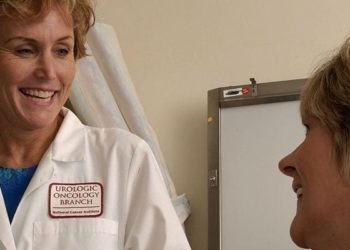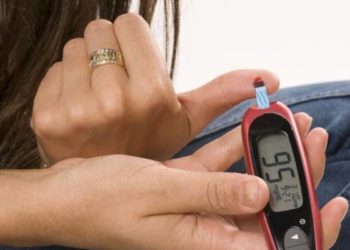The Scan by 2 Minute Medicine®: the Future of Medicine, Neuralink, the Spotlight on Celine Dion and COVID-19 on Social Media
12-27-2022
The Scan by 2 Minute Medicine® is a pop-culture medical newsletter and exclusive benefit for 2 Minute Medicine Plus subscribers.
The Future of Medicine
The Story: A recent study conducted by the Mayo Clinic has found that they are successfully able to use AI (artificial intelligence) to detect signs of heart disease earlier. More than 11, 000 patients in over 48 Mayo Clinic centres across Minnesota and Wisconsin who had an ECG (electrocardiogram) were enrolled in the study, which found that clinicians, including physicians and nurse practitioners, who used the AI ECG tool were twice as likely to diagnose a low ejection fraction.
What is an ejection fraction?
An ejection fraction is essentially a measurement of how well the heart is pumping. There are many reasons having a decreased ejection fraction, such as a coronary artery disease, poorly controlled hypertension,cardiomyopathy, aortic stenosis and with other issues with the heart valves. While there are many ways a clinician can measure a person’s ejection fraction the Mayo Clinic study suggests that AI can detect declining ejection fraction sooner. This has massive implications for management of heart disease, specifically, that it can be treated sooner and potentially mitigate many of the associated severe complications.
What are some signs of heart disease?
Heart disease may be completely asymptomatic, in fact, hypertension is often referred to as “the silent killer”. The most common symptoms of heart disease are shortness of breath on exertion or at rest, fatigue, weakness, sweating, palpitations, and shortness of breath when lying down. If a person has coronary artery disease, they may also experience chest pain. One of the most feared complications of heart disease is an MI (myocardial infarction), often called a heart attack. While the symptoms listed above are typically present, the onset of symptoms in an MI is usually quick and individuals, especially females, may only experience nausea, vomiting, and back pain. It is important to be able to recognize these symptoms all year round, but especially as we enter the holiday season, as research has shown that death due to heart disease is higher at this time of year. There are many possible explanations for this, but identifying the symptoms and seeking immediate medical attention can be lifesaving.
What else has AI been used for?
Great question! Research in the UK has shown that AI can been used to analyze MRIs (magnetic resonance imaging) conducted on the heart in a matter of seconds. Another study has found that AI can detect tiny amounts of the beta amyloid protein, which might be the trigger for developing Alzheimer’s. In a nutshell, there are many different ways in which AI is being used to augment healthcare. And even beyond its these applications, for those of us who use a FitBit or Apple watch, we are using AI every day!
Neuralink
Three years ago, Tesla founder and twitter CEO, Elon Musk, promised that human trials for Neuralink would begin by the end of 2020. This hasn’t happened yet, but Musk is confident that trials will begin soon. Neuralink is a brain implant that allows the user to control any computer or mobile device with their brain. A small implant is placed in the brain through a neurosurgical procedure and then an app is downloaded onto the device of choice. The implant and app connect via Bluetooth, and then the user can control the mouse or keyboard.
Musk isn’t the first to trial this type of technology. The Switch trial first launched in Australia in 2019, focusing on the Stentrode system by Synchron. As of June 2022, the Stentrode has been successfully used in two patients with ALS (amyotrophic lateral sclerosis) also called Lou Gehrig’s Disease, by allowing them to communicate through text. While Neuralink claims to have essentially the same function, Musk has also stated that eventually it could cure blindness or restore body functions in those with severed spinal cords. While this would have an incredible impact on the medical field, experts remain skeptical of Neuralink, in part because the FDA has yet to approve Neuralink and human trials have yet to begin. Besides these two companies, there are many others that are working on similar technologies and it seems to just be a matter of time before implantable brain devices might become readily useable.
The Spotlight on Celine Dion
Often when we think of celebrities who produce Christmas music, we think of Michael Bublé or Mariah Carey, but we cannot ignore the French-Canadian icon, Celine Dion who recently announced her 2023 tour will be postponed due her recent diagnosis of Stiff-Persons Syndrome, or SPS for short.
SPS is a rare progressive autoimmune neurological condition, resulting in muscle rigidity, pain, and muscle spasms. An autoimmune condition refers to one in which the body’s immune system does not recognize its own cells and attacks them as if they are invaders. There are many different autoimmune conditions, including rheumatoid arthritis, type I diabetes, and Graves’ disease, to name a few of the more common ones. It is by looking for the blood level of specific attack cells, or antibodies, called GAD antibodies, that clinches the diagnosis of SPS.
SPS is very uncommon, with the prevalence thought to be 1-2 cases per 1 million people, two thirds of which occur in females. While it is a progressive disease and there is no cure at this time, there are many treatment options to manage symptoms. These include benzodiazepines, baclofen, and neuropathic pain medication like gabapentin or pregabalin. New research suggests IVIg (intravenous immunoglobulin), a blood product commonly used in the management of some autoimmune conditions, may be effective in the treatment of SPS. Additionally, there are some non-pharmacological options that should be used in accordance, such as physiotherapy, hydrotherapy, and acupuncture. But regardless, a strong support system makes dealing with any medical condition just a little bit more manageable, and Ms. Dion has said that “her kids have been her rock” through her diagnosis.
COVID-19 has Gone Viral on Social Media
This December marks three years since the first case of Covid-19 in Wuhan, China and we are only a few months shy of the three-year anniversary of the pandemic being declared. In these three years, we have seen entire countries shut down, healthcare resources completely drained, and social media being used to spread both factual information and misinformation. The later led platforms like Twitter and Facebook to enact policies to help prevent the spread of incorrect and potentially harmful misinformation. But this is no longer the case for all platforms, as Twitter will no longer enforce this policy. Although the exact reason for this change has yet to be confirmed, critics are speculating that it may have something to do with repercussions due to the large volume of employees who have recently left the company, many of whom were involved in developing and enforcing such policies. Since the introduction of the policy, over 11, 000 accounts have been suspended and almost 100, 000 tweets have been removed from the social media platform for sharing Covid-19 related misinformation.
Since the change in policy, many medical professionals, public health officials, and politicians have shared their concern over the recent change, fearing that there could be an increase in the spread of misinformation and, as a result, leading to an increase in the virus rates and ultimately, the associated complications. But it isn’t just those who work in healthcare and related fields; even Sir Elton John has recently deleted his Twitter account, stating that he was leaving due to the policy change and potential for the dissemination of incorrection information. And he isn’t alone, other celebrities including Whoopi Goldberg, Jim Carey, Shonda Rhymes, and Sara Bareilles are among those who have deleted their accounts.
Importantly, even though we seem to be out of the worst of it, the pandemic isn’t truly over. According to the World Health Organization’s (WHO) Covid-19 dashboard, there have been more than 3.3 million new cases of Covid-19 reported and 9, 500 Covid-related deaths in the last week alone, with majority of the cases in Japan, USA, and Republic of Korea. Even though this represents a small percentage of the total number of reported cases, many worry that this number will significantly increase with the dissemination of false information and that factual information will get lost in the Twitter-verse.
From all of us at 2 Minute Medicine, we wish you a very happy holidays and a happy, healthy new year!
©2022 2 Minute Medicine, Inc. All rights reserved. No works may be reproduced without expressed written consent from 2 Minute Medicine, Inc. Inquire about licensing here. No article should be construed as medical advice and is not intended as such by the authors or by 2 Minute Medicine, Inc







